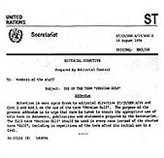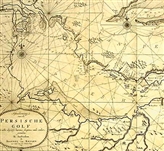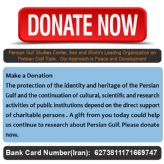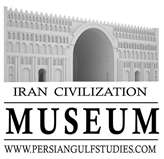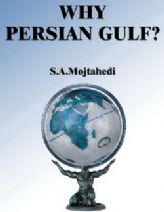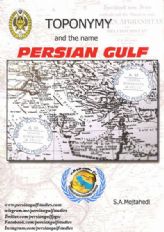Khashoggi’s Disappearance Is a Slap in the Face to the United States
Date: 10/10/2018 11:58:21 AM
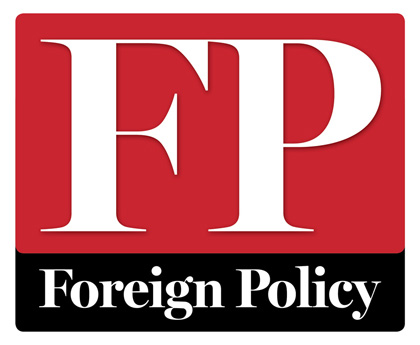
Khashoggi’s Disappearance Is a Slap in the Face to the United States
Washington should explore retaliatory measures that impose real costs on Saudi Crown Prince Mohammed bin Salman.
BY WILL INBODEN
Posters advocating for Saudi journalist Jamal Khashoggi hang on a police barricade in front of Saudi Arabia's consulate in Istanbul on Oct. 8. (Chris McGrath/Getty Images)
Saudi Arabia is one of the United States’ most important allies in the Middle East. Saudi Arabia is also a tyrannical monarchy that punishes dissent, oppresses its own people, and has supported the spread of an intolerant form of Islam worldwide. These two realities exist in uneasy tension with each other and summarize the strategic challenge that has beset U.S. policy toward the kingdom for the past several decades. The U.S.-Saudi relationship has weathered many disagreements and crises before, the most acute being the OPEC oil embargo of the 1970s and the aftermath of the 9/11 attacks, when it came out that 15 of the 19 hijackers were Saudi citizens. Yet, more often than not, U.S. and Saudi leaders have been able to walk this relationship tightrope together without either slipping or falling off.
But now the veteran Saudi journalist Jamal Khashoggi is missing, and the tightrope is beginning to shake again. As has been widely reported, Khashoggi hails from a prominent Saudi family and has maintained an uneasy existence as an alternating confidant and a critic of the ruling regime, including most recently as a Washington Post commentator living in exile in the United States. Until his disappearance last Tuesday during what should have been a routine visit to the Saudi consulate in Istanbul. The most worrisome—and gruesome—reports from anonymous Turkish sources say that Saudi assassins murdered Khashoggi. As of writing, nothing has been confirmed, yet any remaining hopes for his possible reappearance are being eclipsed by the growing likelihood that his killing was ordered by Saudi Crown Prince Mohammed bin Salman.
If Khashoggi is dead, his murder is both an abomination and an affront to U.S. support for the House of Saud. Not only was Khashoggi a peaceful and responsible voice of reform, but as a U.S. resident, he was living under the de facto protection of United States. His abduction from Turkey—a NATO ally (albeit a problematic one)—only furthers the brazenness of the Saudi plot against him. FP’s Elephants in the Room contributor John Hannah warned prophetically last month that Mohammed bin Salman’s ego and missteps were overshadowing his admirable reform agenda. This latest outrage just confirms that the crown prince is now more despot than reformer.
This latest outrage just confirms that the crown prince is now more despot than reformer.Whether the Trump White House admits it or not, the disappearance of Khashoggi is at once an atrocity, a tragedy, and a humiliating slap in the face to the United States.The challenge for the United States is how to respond with appropriate outrage and inflict effective retaliatory measures on Riyadh without derailing the entire U.S.-Saudi relationship and hurting the United States’ many other regional interests. Unfortunately, the Trump administration has already squandered much of the country’s leverage and moral capital through unconditional support for the Saudi war in Yemen, refusal to address Saudi Arabia’s many other human rights oppressions, and failure to stand with Canadian allies against Mohammed bin Salman’s hysterical overreaction to Ottawa’s mild rebuke after his arrests of reform-seeking female bloggers. “[T]here is a better way for the kingdom to avoid Western criticism,” Khashoggi wrote in the Washington Post at the time. “Simply free human rights activists, and stop the unnecessary arrests that have diminished the Saudi image.” U.S. silence in the face of such behavior may have partly induced Mohammed bin Salman into thinking that he could act against Khashoggi with impunity.
While some stale conventional wisdom holds that the United States cannot simultaneously stand for principles of human dignity while also maintaining stable relations with autocratic allies who share its other interests, there is ample precedent otherwise. The Reagan administration preserved U.S. alliances and partnerships with countries such as South Korea, the Philippines, Taiwan, and Chile while also encouraging them—sometimes quietly and sometimes loudly—along the path to democratic transitions.
Or take Saudi Arabia itself. When I worked for the U.S. State Department during the George W. Bush administration, in 2004 the United States designated Saudi Arabia a “country of particular concern” for its endemic religious intolerance and persecution. This followed a lengthy internal dispute within the department, with the Bureau of Near Eastern Affairs parroting the predictable line that sanctioning a close ally would be counterproductive and hurt other U.S. interests while not leading to any improvements in religious freedom. Instead, following Bush’s decision to impose the designation, the Saudis did take some quiet but meaningful steps to allow more latitude for worship by non-Muslim communities while toning down the anti-Semitism and anti-Christian slanders in their textbooks. Meanwhile, important U.S.-Saudi cooperation continued in areas such as counterterrorism, energy, and regional security, relatively untrammeled by the designation. (During one of my trips to Riyadh in 2003 for these negotiations with the Saudis, I met with Khashoggi, then as now a reform-minded journalist.)
Khashoggi’s disappearance, as appalling as it is, may also bring an opportunity for repairing the U.S.-Turkey relationship. Washington’s ties with Ankara, on a steady deterioration in recent years, have in the past few months accelerated into a free fall over issues ranging from Turkey’s illicit detention of the U.S. pastor Andrew Brunson and other prisoners of conscience to its growing ties with Russia. It would take some deft diplomacy, but perhaps the Trump administration could forge a quiet deal with Ankara that includes Brunson’s release and the cancellation of Turkey’s purchase of S-400 missiles from Russia in exchange for robust collaboration with the United States against Saudi Arabia over the Khashoggi case.
Regardless, the United States should explore some retaliatory measures that impose real costs on Riyadh. Options to consider include expelling the Saudi ambassador for a time, imposing visa bans on other senior Saudi officials complicit in targeting Khashoggi, and even the suspension or reduction of U.S. weapons sales and other security cooperation with the Saudis. Khashoggi, after all, is more than just one man—he represents the best hopes for further reform in Saudi Arabia and for responsible checks on the power and hubris of the kingdom’s reckless crown prince.

